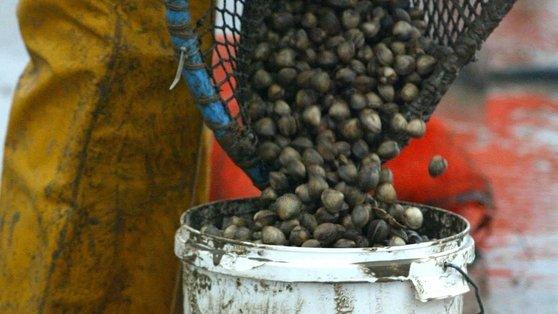Mussel row 'a threat' to Welsh protected status seafood
- Published
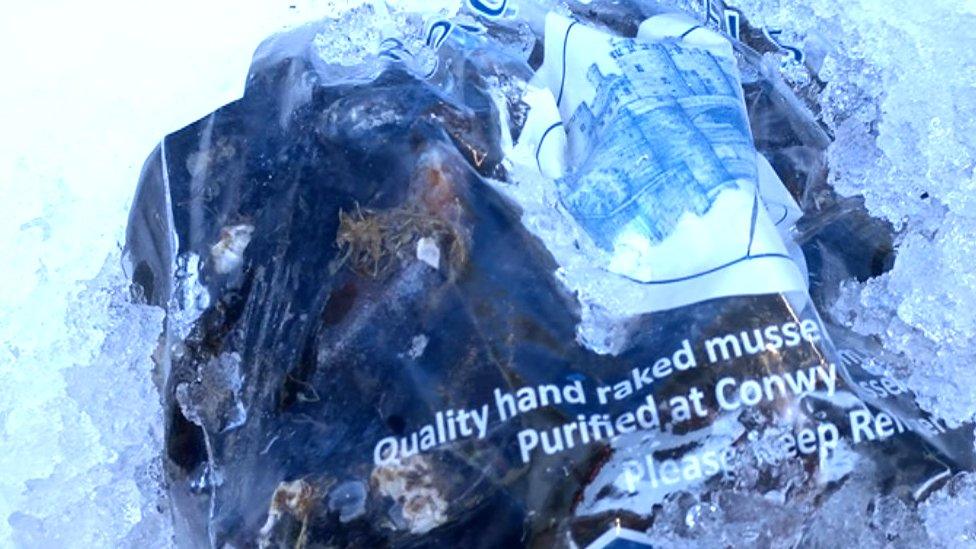
On sale - but for how long will Conwy mussels be on the menu?
Mussel gatherers in a Welsh town have claimed red-tape is threatening to wipe out their cottage industry.
Conwy mussels' status is protected like some of the best food and wine, such as Champagne or Italian prosciutto ham.
But the town's "mussel men" have been told they must now use licensed boats to go out to harvest the shellfish.
On Tuesday, Conwy council's cabinet agreed to intervene and see if it could take over regulating the business from the Welsh Government.
It followed a plea from the town's mussel men to help protect their trade.
Thomas Jones, who runs the Conwy Mussel company on the town's quayside, said the demand to license their boats had come "out of the blue".
"The season starts for us in September, so at the start of this season, the fisheries brought in a regulation that is new for us, which means you've got to have a fishing licence to collect mussels on the river," said Mr Jones.
"Basically, the fishermen who haven't got a fishing licence to go with their mussel permits have been put out of work."
Thomas Jones said he fears for the industry's future
He said three of his mussel men lost their jobs, and there were just two people left in the town who now had the right paperwork to go out into the estuary to gather mussels.
According to the Welsh Government, it all stemmed from changes to the way the fishing and shellfish industry in the area was managed.
A piece of legislation known as The Conwy Mussel Fishery Order 1948 lapsed in 2008, leaving the industry "in limbo", according to Mr Jones.
Since then, the mussel harvesters have relied on Conwy council to issue their permits to gather mussels.
"We only collect mussels in the river here, we're not really fishing," added Mr Jones.
"We are certainly not going out in the bay for them - out to sea. So we don't understand how it applies to us."
He said obtaining licences for boats would cost thousands of pounds - something the Conwy mussel harvesters could not afford.
The mussel men traditionally use a shallow-bottomed boat known as a "dory" and hand-rake the mussels from the estuary bed using pine wood rakes, which can be up to 15m (49ft) in length.
It is just another one of the unique features that allowed the mussels to be awarded the sought-after Protected Designation of Origin, external.
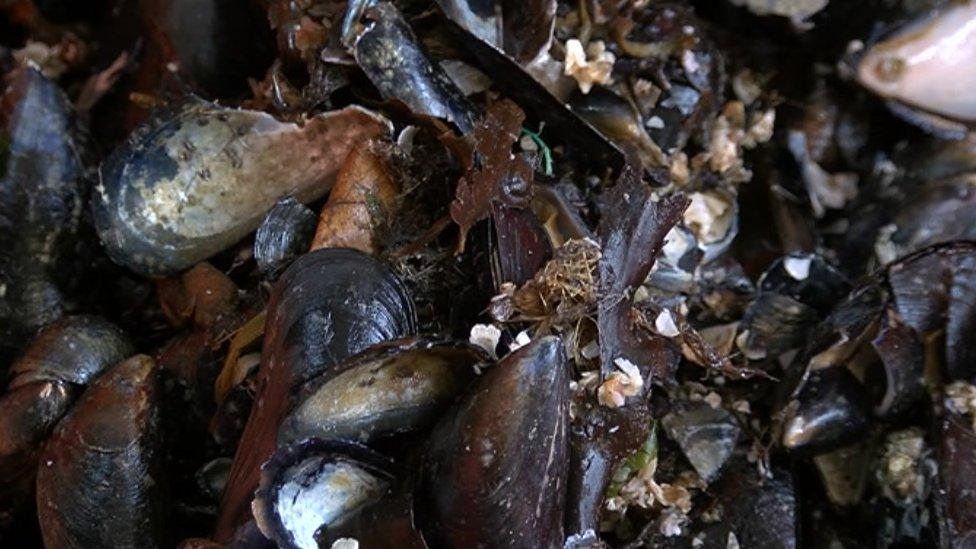
The Conwy mussels are sorted and then purified at a quayside plant
Conwy council leaders had been asked to help prepare and fund the legal process which will set out who manages the estuary mussel beds.
Known as a "several order" it would replace the defunct 1948 legislation.
The cabinet agreed it would look at establishing the regulatory order to run the mussel beds and also license the boats locally.
Conwy council leader Gareth Jones added: "We are very worried - this industry has been a key part of Conwy's character over the century's and needs to be protected."
However, it was recognised that establishing the new orders would take several months and cost a substantial amount of money.
In the meantime, the Welsh Government has said the current boat licence arrangements must remain in place.
"Until a several order is granted, fishers are required to use licensed fishing vessels to comply with the relevant legislation," said a Welsh Government official.
The Aberconwy assembly member Janet Finch-Saunders described the situation as "absurd".
"It's affecting the livelihoods of almost everyone involved in this tiny industry," said the Conservative AM.
"We need to see some pragmatism from the Welsh Labour Government, and urgent action to put this right."
- Published17 May 2017
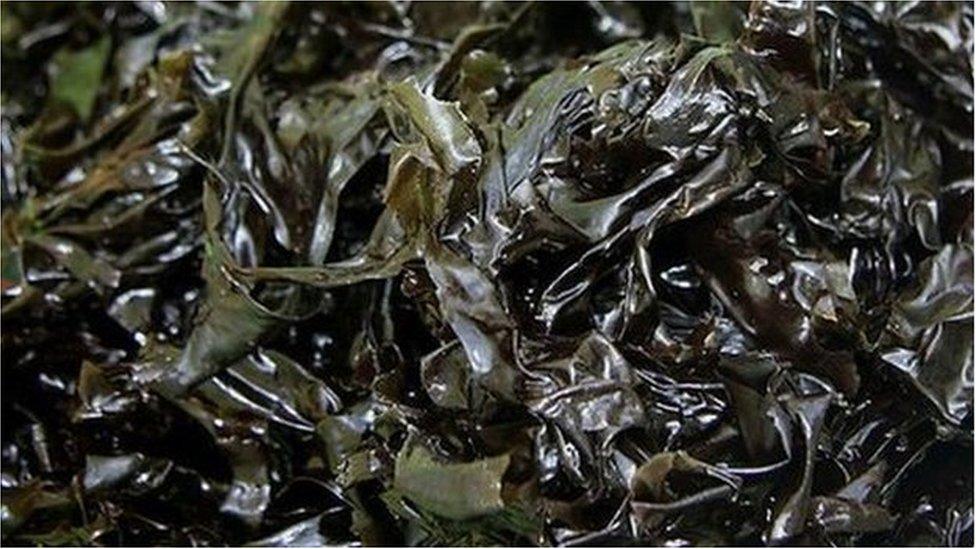
- Published7 March 2013
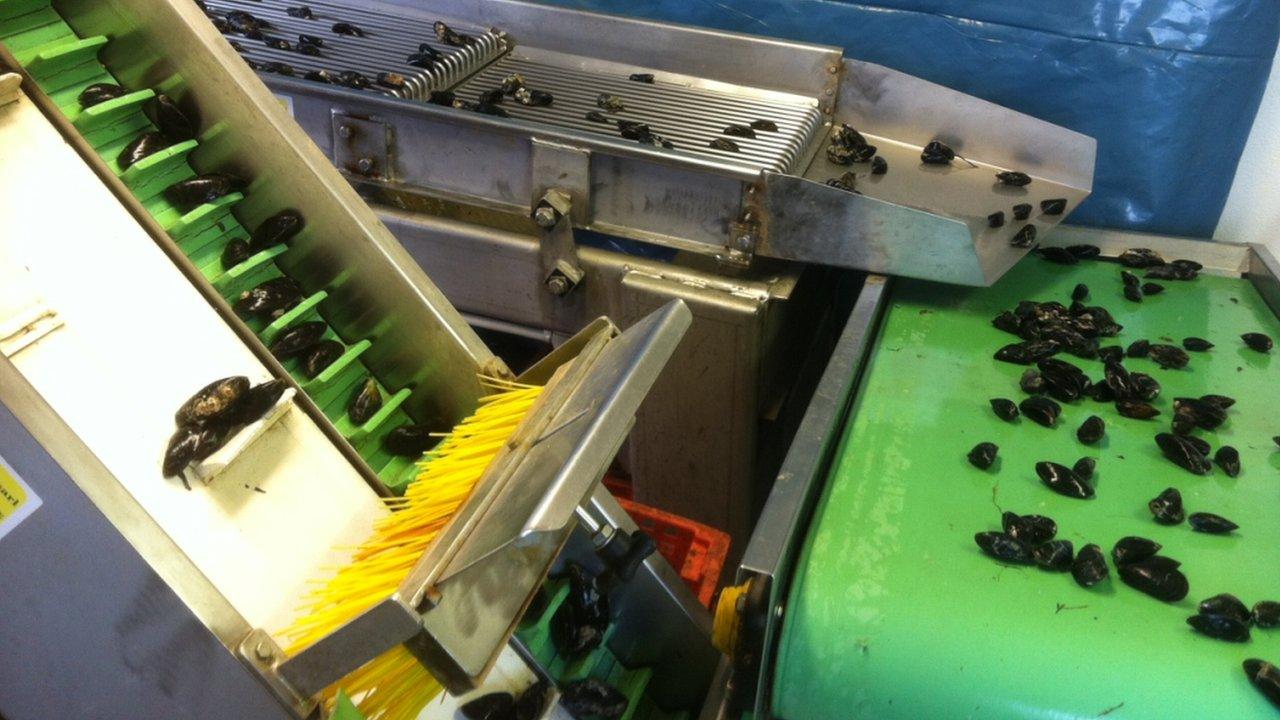
- Published16 September 2013
